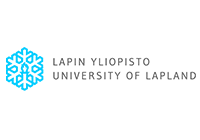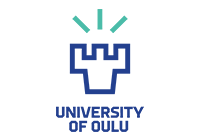We are pleased to announce the 2023–2024 season of FinEd Online Research Talks (FORT). The FORT events cover current topics in educational sciences and showcase the varied research conducted in FinEd’s member universities. The FORT events are targeted particularly for PhD researchers, but all members of the scientific community, as well as all other interested parties, are also warmly welcome. Participation is free, details on the talks below!
Tuesday 14.11.2023, at 12–13 o’clock
Research coordinator Milla Saajanaho (University of Jyväskylä):
Agency and developmental regulation in late adulthood
Developmental regulation is a way for people to direct their lives through three mechanisms: proactive coping (i.e., planning the future and preventing future losses), primary control (i.e., goal striving and tenacity), and secondary control (i.e., adjustment and accommodation of one’s goals). This research talk will shed light on the theoretical basis of developmental regulation, its connections to agency, as well as its relevance in the lives of older people. Moreover, empirical results on preparation for aging and goal setting and goal adjustment in late adulthood is presented.
Milla Saajanaho, PhD (Health Science), MA (education), is a research coordinator in the Doctoral Programme in Education at the University of Jyväskylä (JYU). Prior, she worked as a post-doctoral researcher at the Gerontology Research Center at JYU, first in the ERC-funded AGNES-project (PI Taina Rantanen) and, second, in the TRAILS-project (PI Katja Kokko, funded by the Academy of Finland), which forms the latest follow-up for the Jyväskylä Longitudinal Study of Personality and Social Development. Saajanaho’ s main research interests include aging, personal goals, and developmental regulation across the life span.
Link to Dr. Saajanaho’s talk https://helsinki.zoom.us/j/63121102874?pwd=YmlUUkwvZ1h4NFUyaTUzSU1vcCtsQT09
Meeting ID: 631 2110 2874, Passcode: 477467
Thursday 14.12. at 12–13 o’clock
Assoc. Prof. Vesa Korhonen (Tampere University):
Towards recognizing the possible interrelated connections between student engagement and well-being within higher education studies?
The starting point of this lecture is the identification and modeling of the key characteristics and dimensions of two extensively studied topics in higher education, namely student engagement and well-being. Furthermore, their potential common dimensions are discussed for an empirical framework. The factors related both to student engagement and well-being can be seen as integral to supporting comprehensive pedagogical well-being and agency within higher education teaching and learning communities. The presentation will include an examination of the application of the modeled framework, for instance, to analyze positive and negative remote learning experiences during exceptional circumstances in a university setting, such as the COVID-19 pandemic. The lecture aims to stimulate discussion and thinking about integrating different traditions and theoretical backgrounds to diversify interpretations.
Vesa Korhonen is an Associate Professor at the Faculty of Education and Culture, Tampere University, Finland. His main research interest has focused on teaching and learning in higher education. In this context, he has conducted research related to both students and teachers in the field of higher education for over two decades, as well as research related to the effects of digitalization of learning environments. He is a co-leader of the Higher Education in Transition (HET) research group at Tampere University and acting as co-convener in Research in Higher education network within the European Education Research Association (EERA). The most recent ongoing research focuses on a comparative perspective on the impact of assessment culture on the agency of higher education students in two different cultural contexts. Twitter @vakorhonen
Link to Assoc. Prof. Korhonen’s talk https://helsinki.zoom.us/j/69778742501?pwd=Q1dEbUh2RnVYem1GWk56bHhleEE2Zz09
Meeting ID: 697 7874 2501, Passcode: 096281
Monday 22.1.2024 at 12–13 o’clock
Professor Sara Routarinne (University of Turku):
Learning-in-interaction: what makes video observations powerful for studying teaching and learning?
This presentation delves into the role of videorecordings in unraveling the intricate dynamics of teaching and learning as interactional accomplishment. The basis of the presentation is the collaborative efforts of the CERLIs Learning-in-interaction research team, centering on the dynamics and processes inherent in teaching and learning within social and interactive contexts. Video-observations serve as a means to capture “thick descriptions” (Geerts, 1973) of real-time interactions. In this presentation I will critically analyze video documentation method in relation to other methods such as school ethnography, observation protocols, surveys, and interviews particularly focusing on its ability to capture subtleties of teaching and learning in various educational settings. To provide a comprehensive context, I will briefly review the development of documentary recording methods (from audio to video) tracing their origins back to Sinclair’s and Coulthard’s (1975) classroom discourse analysis and Mehan’s seminal work on “Learning lessons” (1979). I will also explore recent developments in research utilizing video data (e.g. Gardner, 2019). Furthermore, recent research has expanded its focus to encompass various dimensions, such as the professional embodiment of teachers (as seen in Jakonen, 2020), professional vision (as explored by Pouta et al., 2021), language socialization (examined in Burdelski & Howard, 2020), emotional support for students (see Salo et al, 2022), metacognitive regulation (as evidenced in Iiskala et al,. 2020), pedagogical touch (as demonstrated in Heinonen et al., 2020; Routarinne et al., 2020), and the use of video as a tool for professional development of both pre- and in-service teachers (e.g. Lepola et al., 2022). In conclusion, video observations hold a significant role in advancing our understanding of teaching and learning. The unique ability to unveil and go back to the subtleties and granularity of these interactions makes video analysis an indispensable tool in educational research with profound implications for professional development and understanding processes of teaching and learning.
Sara Routarinne is Professor at the Department of Teacher Education at the University of Turku, Finland. Her research interests include classroom interaction; Finnish language education; Conversation Analysis; Content Analysis; and Interactional linguistics.
Link to Prof. Routarinne’s talk https://uef.zoom.us/j/64772855098?pwd=YU91Ny9hU1p6c0g5dFBTVDBia1RDUT09
Meeting ID: 647 7285 5098, Passcode: 326909









